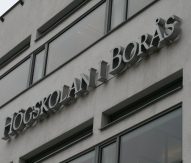
Project to create NIR packaging alternatives
Plastic recycling company Luxus has secured a £1.29m (~€1.47m) investment under the Horizon 2020 programme, in a consortium with Polykemi and global plastics manufacturer One51.
The funding supports NIRSort, a commercialisation project which aims to replace carbon black and other pigments with a range of near-infrared (NIR) detectable alternatives for use by packaging, automotive and consumer durables manufacturers.
Each year 3.5 million tonnes of polymer are discarded in the UK alone, since black and some other coloured packaging cannot be picked up by recycling sorters. This is due to the products containing carbon black that reflects very little or no radiation rendering it ‘invisible’ to sorting machines in recycling depots.
NIRSort is a two year project that will be led by Luxus in collaboration with global processor Polykemi. Polykemi will participate by formulating, processing and testing materials. The resulting materials will be then further evaluated for use in innovative packaging material via Polykemis subsidiary Scanfill.
The third consortium partner is rigid plastics manufacturer, One51, selected for its injection moulding manufacturing expertise.
Christel Croft, technical director at Luxus, said: “This pioneering project is based on the previous successful work to identify NIR detectable alternatives to carbon black from specialist additive and masterbatch supplier, Colour Tone, which Luxus acquired earlier this year.
“It aims to develop a range of colourants for polymers that will enable NIR sorting operations to segregate black and coloured plastics from waste streams to a level of purity that they are useable in highly engineered polymers.
“We have defined a programme of development, designed to identify formulations with optimal cost effectiveness in packaging recycling and to extend the technology across to Waste Electrical and Electronic Equipment Directive (WEEE) and end-of-life vehicle applications, each of which has its own specialist requirements.”
The most immediate market need is for food packaging, which typically has a three to 12 month cycle from ‘make-to-waste’.




